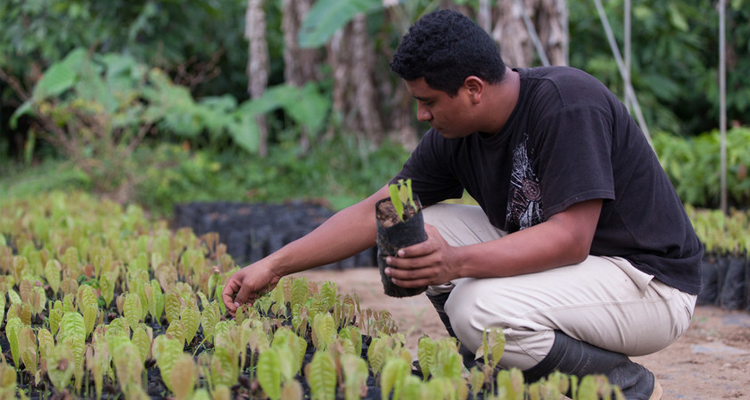As a part of this movement, Fairtrade is bringing the voice of small-scale farmers to the summit to highlight the urgent need for action by governments and other stakeholders in food supply chains.
Faced with droughts, floods, and unpredictable weather changes, more and more smallholder farmers are forced to leave their fields and migrate. Therefore, the fair trade movement calls for urgent, concrete and ambitious action to address these adverse effects of the climate crisis, which put at risk the most vulnerable populations, world food security and, by extension, the achievement of the Sustainable Development Goals.
The fair trade movement warns that current unsustainable business models, where the well-being of people and planet are often sacrificed in the pursuit of profits, remain a key driver to the accelerating climate crisis.
‘Climate change has evolved into a climate crisis. We must now focus on supporting smallholder farmers in adapting their livelihoods to a crisis that was not of their making. Ensuring the sustainability of agriculture and fair trading terms requires real action from all of us – from smallholder farmers to government, businesses and consumers. We call on the leaders at COP25 to play their part and catalyse climate and trade action,’ says Dario Abril Soto, CEO at Fairtrade International.
Transparent supply chains, a more equal distribution of value among supply chain actors and observing Human Rights Due Diligence are crucial factors for fundamentally bolstering the climate resilience of smallholder farmers. Moreover, better remuneration, technical support and better access to finance are needed to allow them to make vital investments into climate mitigation and adaptation measures.
Fairtrade offers fairer terms of trade so farmers can have more control over their futures. Certified producer organizations receive guaranteed minimum prices when they sell their crop on Fairtrade terms, plus they earn a Fairtrade Premium on top of the selling price which they decide how to spend on their businesses and communities. The Fairtrade Standards encourage pre-financing and long-term contracts so farmers can plan and invest. Fairtrade also supports smallholder farmers in assessing their climate risks and adapting their businesses, such as by switching to more climate resilient plant varieties, diversifying crops, and using water more efficiently.
Nevertheless, the sheer scale of the crisis means that we cannot rely on consumers alone to demand more sustainability and trade justice as a way to ensure climate resilience, nor can the burden of adaptation to protect the world’s food supply fall on smallholder farmers alone.
‘The sad truth of the climate crisis is that it devastates the most marginalized communities, who are the people least responsible for the crisis. This is why in tackling climate change, we must also overhaul global trade and business models to put the interests of these people first,’ says Erinch Sahan, Chief Executive at the World Fair Trade Organization.
Fairtrade is co-hosting two side events at the COP25 summit to highlight producers’ needs and voices. On 6 December at the German Pavilion, Peruvian cocoa farmer Luis Mendoza Aguilar will join Fairtrade to discuss climate risk insurance (‘The million farmer network: bringing climate risk insurance to vulnerable farmers’). Mr. Mendoza Aguilar is a board member of the Fairtrade producer network for the Latin America and the Caribbean region, and general manager of the Peruvian Association of Small-scale Cocoa Farmers. Fairtrade will also co-host a side event on 4 December at the European Union Pavilion on carbon farming initiatives and lessons learned from climate risk insurance.
